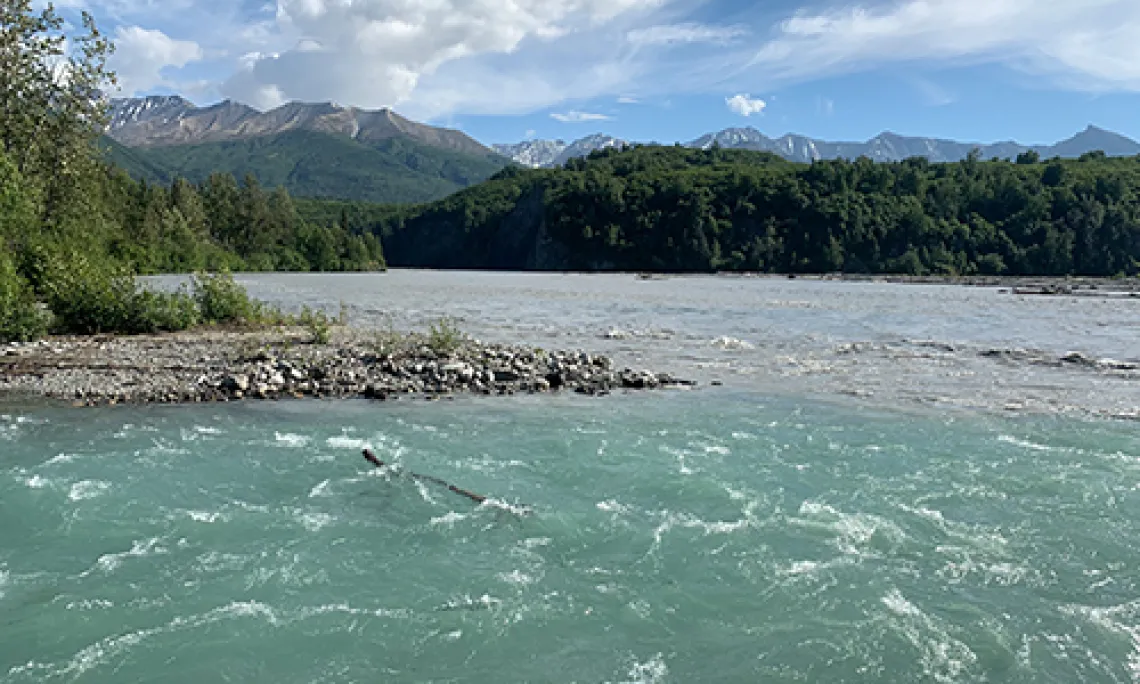The Air Between Arizona and Alaska

Look around, the world we know is changing; across the globe, communities are witnessing the signs, and we've seen them here, too. In 2017 a team of researchers from the University of Arizona and the University of Colorado formed a network to enhance discussion at the nexus of food, data, and tribal sovereignty: How do we support Indigenous community-driven and defined research, governance, and knowledge in relation to food? The Indigenous Foods Knowledges Network, funded by the National Science Foundation (Award Number1745499) (IFKN), was created to help answer these questions. IFKN's focus is rooted in the Arctic and the United States Southwest, two environmentally extreme regions called upon to adapt to rapid socio-ecological change. NNI’s Stephanie Russo Carroll shares, "Each IFKN summit is an opportunity for Indigenous knowledge holders, researchers, community stakeholders, and global families to exchange knowledges and cultures. It is a way to strengthen Indigenous governance through food and data sovereignty, decolonizing research, and tribal research governance."
In June, IFKN returned to the Arctic for their third meeting. Nay'dini'aa Na'Kayax' (Chickaloon Native Village) in Alaska hosted the gathering alongside its annual culture camp. Stephanie Russo Carroll (Ahtna), Native Nations Institute (NNI) Associate Director and principal investigator (PI) for the University of Arizona (UA), Mary Beth Jäger (Citizen Potawatomi Nation) NNI Research Analyst and IFKN co-organizer, Dan Ferguson, Institute of the Environment and IFKN co-PI, Tristan Reader UA American Indian Studies and IFKN co-PI, and Lydia Jennings (Huichol and Pascua Yaqui Tribe) PhD Candidate in Environmental Sciences and NNI Indigenous Data Sovereignty Doctoral Scholar at the University of Arizona were in attendance. An essential element of IFKN is to talk, to share stories, to listen, to understand, and then to find ways to act. Jäger added, "There is something powerful about being part of the teaching of culture and language to children from adults and elders on their land. The cross-cultural exchange allows for the strengthening of governance across the two regions."
Jennings speaks to the importance of IFKN's work with Indigenous peoples living in two environmentally extreme regions. The environmental pressure placed on arctic and dessert communities does not happen in isolation; it takes approximately 7 days for pesticides sprayed in Arizona to reach Alaska. Jennings shares, "Through my visit, conversations with tribal members and learning about the important work of Indigenous community-driven research projects, like Alaska Community Action on Toxics (ACAT), I learned about how our decisions here in the lower 48 states greatly impact the food and health of communities up in Alaska, especially those who rely on subsistence food systems."
Images from top: Amy Juan sharing a story, Stephanie Russo Carroll and Mary Beth Jäger, fish in a smokehouse, Lydia Jennings discovering lichen
Image credits: Colleen Strawhacker and Noor Johnson

